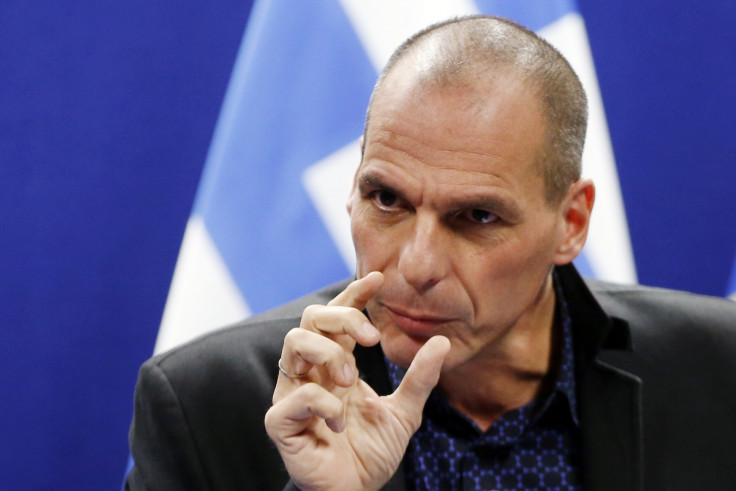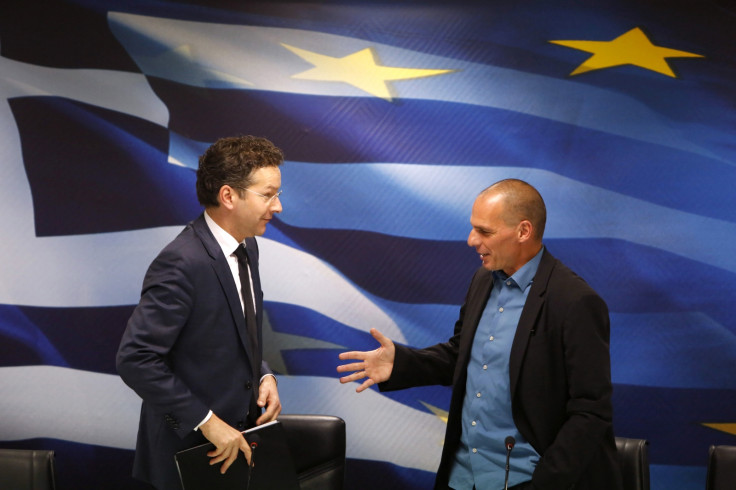Greece and the eurozone: A sinful cocktail of debt and denial

The future of the Greek economy and its place in the eurozone are back in the headlines.
The new government in Athens has adopted a confrontational strategy, building upon the anti-austerity stance that propelled Syriza and its allies to power.
In the short term, it will buy some time for Greece. Unfortunately, it is doubtful that it will pave a sustainable way ahead for the Greek economy.
Debt and sin
The confrontation is based on two distinctive narratives. Northern European countries – Germany in particular – interpret the Greek drama as a morality play. It is worth remembering that in Aramaic – the language most likely spoken by Jesus Christ – the words for sin and debt are used interchangeably.
The Greek problem and its solution is often rationalised by the "austerians" in terms of the required atonement, via austerity, in view of the profligacy, corruption and lies that led to the economic disequilibrium behind the current crisis.
The size of this disequilibrium became evident in 2009 when the government communicated that the fiscal deficit was in double digits, a multiple of previous estimates. Greek debt reached 113% of GDP, signalling that sustainability concerns were going to make things even more difficult.
By then, confidence in the Greek government was badly damaged. The ensuing adjustment program negotiated with the "troika" formed by the EU, the ECB, and the IMF imposed strict conditionalities: a significant fiscal adjustment, structural reforms, and privatisation efforts.
The program delivered a large "internal devaluation", including wage reductions in parallel with a dramatic increase in unemployment, which skyrocketed from 7.7% in 2008 to a peak of 27.5% by 2013.
The adjustment was not sufficient to put Greece back on a debt sustainability path. It led to the largest ever debt restructuring experienced by a "developed" country in 2012. This episode could be characterised as the main event in the eurozone sovereign debt crisis and it broke many of the "certainties" that characterized the EU's rules, in particular the assumption that sovereign defaults were not possible.
One of the main consequences of the restructuring was to dramatically transform the composition of Greek debt: it became mainly a public sector affair, with the European Financial Stability Facility (EFSF), the IMF and the ECB now holding almost 80% of Greek debt.
Official creditors supported the bailout in exchange for the continuation of austerity measures. In order to expiate its "sins", Greek society had to continue on an adjustment track that was expected to generate a surplus of 3% by 2015 and of 4.5% by 2016 and 2017.

There is contrasting narrative that has gained attention as the impact of the austerity measures made the adjustment program increasingly unpopular. According to this view, Germany and other fiscal "responsible" countries share responsibility for the Greek tragedy.
Independently of Greek failings, it was the flawed design of the monetary union that created the conditions for the crisis. Not only had many of these countries also failed to meet the Maastricht criteria for fiscal probity in the past, but they also closed their "eyes" to the many institutional failings of Greece.
And for reasons of political expediency, the EU accepted its entry in the eurozone, even though it was clear that Greece did not comply with the macro and institutional requirements to join the monetary union.
According to this narrative, Germany was able to run its current account surpluses on the back of the deficits of the periphery. The euro allowed countries in the periphery to borrow, for a while, at rates that were totally disconnected from the real credit risk involved.
Accordingly, the austerians should now recognise the error of their ways and allow Greece to experiment with a growth-oriented recovery program. In short, the Greeks should not be singled-out by adopting a Mae West-style of behaviour ("I generally avoid temptation unless I can't resist it") in response to distorted incentives.
Denial
A compromise between austerians and the Greek government has been reached. Both camps are declaring victory in the extension of the Greek bailout program for the next four months. Each side is playing to its own domestic constituencies. But what was accomplished is basically "to kick the can down the road" and to buy some time to rebuild trust between the relevant stakeholders.
Syriza came to power on the back of its promises to renegotiate Greece's sovereign debt and to put an end to the bailout program. The recent deal does not deliver on any of these goals.
Tsipras and his finance minister decided early on not to put emphasis on restructuring Greece's debt. The debt is not sustainable at current levels and the implications are serious over the long-term (although the current burden of debt servicing is manageable). But it is also true that to focus on debt relief would be a non-starter, given the strong opposition of European institutions and governments to any hair-cut on the value of debt held by public creditors.

The negotiations focused on acquiring some flexibility of the austerity conditions. The list of measures provided by the Greek government on 23 February is very close to previous commitments associated with the bailout program. There are some hints of flexibility with references to the importance of fighting the humanitarian crisis and a moratorium on "auctions of the main residence of households below a certain income threshold" in the context of non-performing loans. In practice there is a strong sense of "déjà vu" in the agreement.
The vagueness of the agreement could be interpreted as a "victory" for Syriza. Initial reactions from the IMF and ECB suggest that tough negotiations lie ahead. Maybe this time Greece will be able to really do something about tax evasion and enforcement (by 2013 more than 80% of undisputed tax-related debt was outstanding). In the meantime, Minister Varoufakis should be reminded that "vision without implementation is hallucination".
Confrontation will continue to be the mark of Greece's relations with its creditors. As long as international creditors deny the need for another major debt restructuring and Greek authorities continue to play the populist card of making promises that cannot be implemented, the equilibrium will be unstable.
Instead of relying on the Greek classics for metaphors, all involved should remember the cautionary words of Polonius in Hamlet: "borrowing dulls the edge of husbandry" (i.e. excessive borrowing can create disincentives to good economic policies).
This, in combination with a national culture of denial about social responsibilities, generates an explosive mix. Difficult days are ahead for the eurozone.
Carlos A. Primo Braga is Professor of International Political Economy at IMD, and Director of The Evian Group@IMD. He teaches in Breakthrough Program for Senior Executives (BPSE), the Orchestrating Winning Performance (OWP) program, and also the IMD-CKGSB Dual Executive MBA.
© Copyright IBTimes 2025. All rights reserved.






















